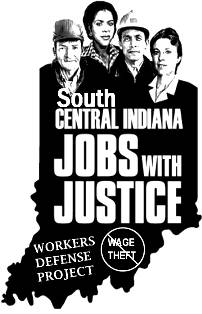"Striketober" and the Great Resignation
by Joe Varga, Associate Professor, Labor Studies Department, Indiana University
_________________________
This month, October 2021, has been dubbed “Striketober” to mark the wave of strikes, potential strikes, and organizing being carried out by workers in the United States in October. The United Auto Workers are striking at John Deere, the farm equipment manufacturer, while the United Mine Workers continue their strike in Alabama. TV and film workers, some sixty-thousand strong, are threatening a walk-out, while Kellogg and Nabisco workers are striking over poor working conditions, and several nurse’s unions are on the verge of work stoppages. All this while historic union drives are happening at anti-union companies such as Amazon. In addition, many workers have simply left or refused to return to jobs they find dangerous and unacceptable during a global pandemic. This overall sense of rebellion among workers has been variously dubbed “The Great Resignation” or, my preference, “The Great Refusal”, and follows in the long history of radicalism by U.S. workers.
While it is too early to tell if we are in a full-on strike wave, such as the one that followed the passage of labor legislation in the mid-1930’s, or the one that followed WWII, and it is hard to predict if this energy will dissipate or grow into an effective rebellion, it is clear that many workers are re-assessing their roles in the capitalist system. We may be experiencing something closer to the “rank-and-file rebellion” of the 1970’s, when union workers expressed not only dissatisfaction with their wages and working conditions, but also with the their own union leadership, and when many workers rebelled against being treated “like machines” and rejected the mind-numbing nature of assembly line work and the rampant racism in their workplaces and union locals.
What many economists wanted to describe as a labor shortage has turned out to be more of a labor refusal. Wage workers, particularly those in the service economy, have either left or refused to return to jobs paying inadequate wages, with poor or no benefits. As well, workers are expressing a genuine dissatisfaction with a system that requires them to risk their health as “essential workers” while funneling the wealth they produce into the swollen bank accounts of CEO’s. As AFL-CIO President Liz Shuler put it, “This is the capitalist system that has driven us to the brink.”
What is not clear is how far the workers themselves can push this nascent rebellion. The forty-year assault on unions and labor rights has left U.S. workers with few good options. Pro-labor legislation is stalled in Congress, while companies like Amazon use their power and creative interpretations of the law to stifle workers’ organizing efforts. Workers attempting to organize face retaliation, while those in unions are threatened with plant closures. While “Striketober” has caused some optimism, it is difficult not to be pessimistic, given the overwhelming advantage held by capitalist firms in the U.S. system.
American workers have a long history of rebellion, from the Great Strike of 1877 through the Terre Haute General Strike of 1935, to today’s Great Refusal. For workers to win, it will require enormous effort, from all of us. Honor picket lines, do not cross them. Call companies and demand they settle with workers. Donate to strike funds. Support boycotts when called for by workers. Organize in your own workplace.
Workers rarely revolt when they are completely oppressed. They rebel when their rising expectations go unmet. American workers expect meaningful work, robust communities, access to quality health care, retirement, and wages that allow them to thrive and enjoy life, not live paycheck to paycheck. It could be that their time has come.
